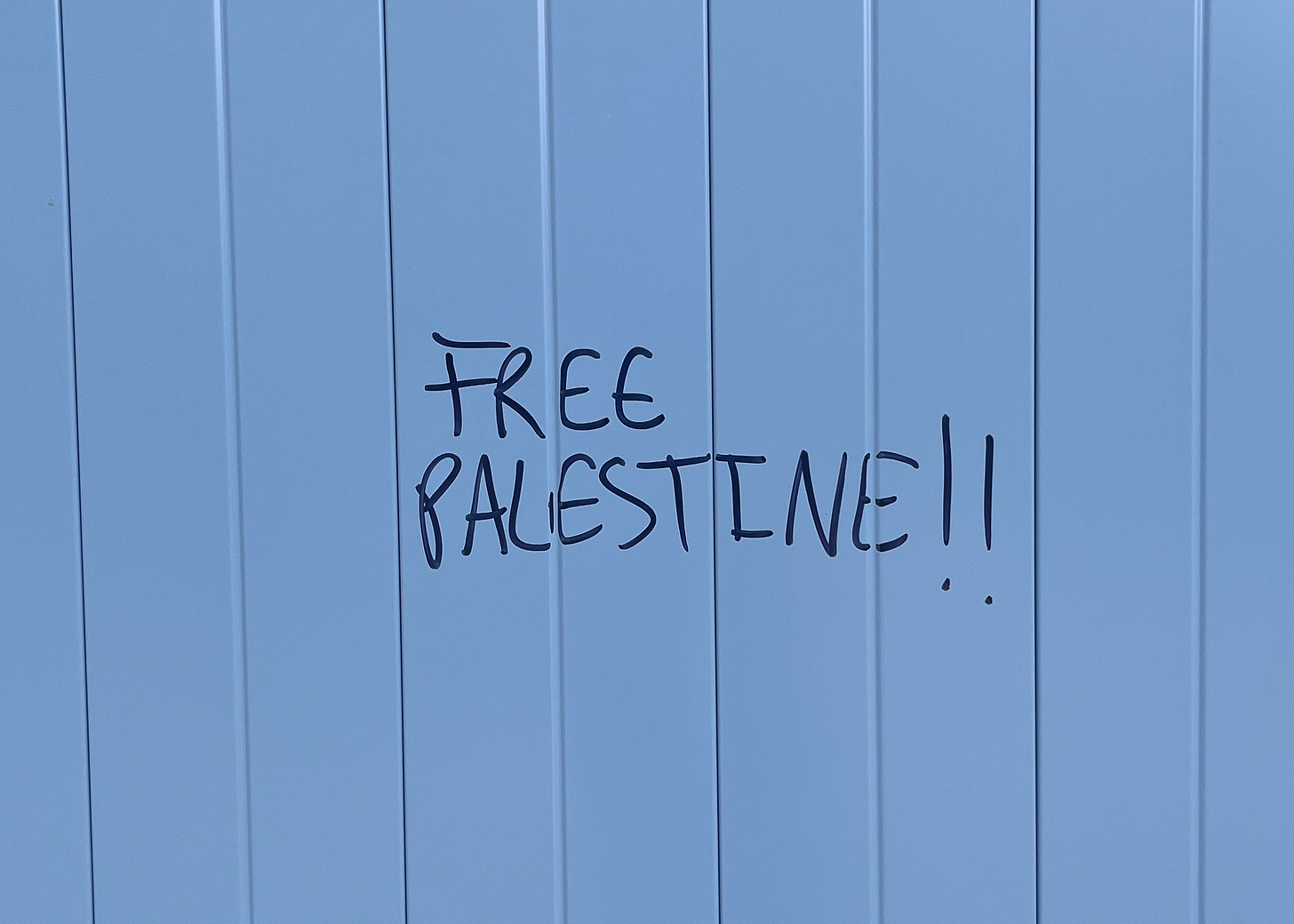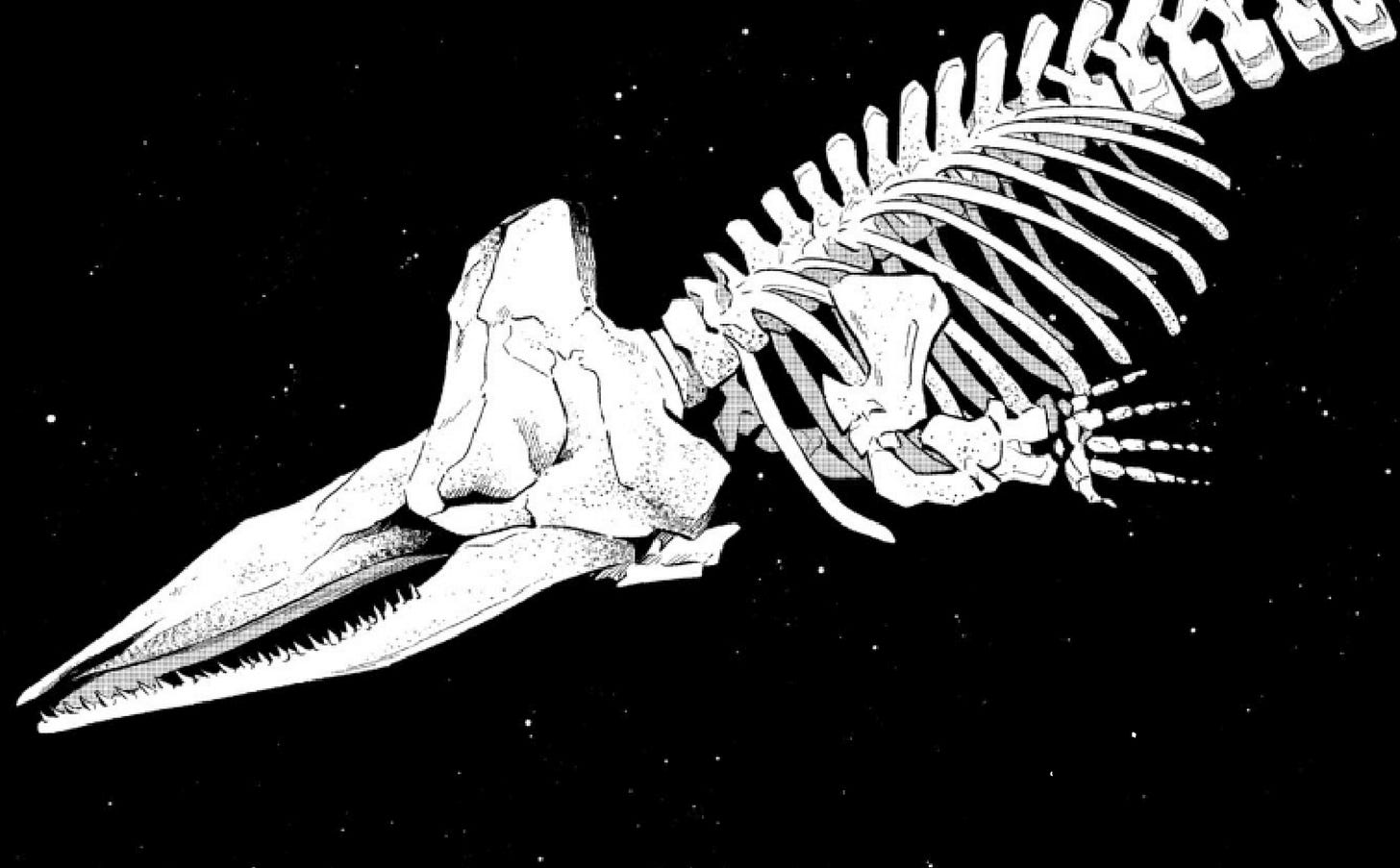There’s been a quiet battle on a certain building wall on campus lately. Someone sharpies “Free Palestine!!” onto the wall. Someone comes along and erases the scribble. A week later, the message reappears. Later, it disappears.
I’ve passed by this quiet back and forth for a little over a month now, and something about it moves me. Maybe it’s just how stubborn this tiny act of solidarity is. Maybe it’s how tiny this act of stubbornness is. Maybe I feel reprimanded by the simple power of the sharpie. After all, I have so many sharpies.
#22 of this substack has gotten to several false starts. A draft was started in early January. A second created on Jan 18th. A third sometime in May. A fourth on June 22nd.
Now we’re creeping into July, and it’s been an almost 7-month gap between my last dispatch and this one. As I’m typing this out, I’m not even that sure I’ll make it to the publish button. I’m trying to write anyway, and with less creakiness and falter.
In the interim, I’ve been writing and reading a lot, with great effort and great procrastination: lazily, earnestly, happily, reluctantly, fervently, absent-mindedly…etc. etc. etc. The reemergence of “Free Palestine!!” on the wall today sparked some momentum in me to resume a draft here on Sift. There have been conversations in class too that have been fuelling my desire. Conversations about time, about horizons and eyes, about language and its fatigue, about failure and continuity.
Some days, I think I am doing way too much and resolve to carve out more time for whatever doing way less means. Other days, I think I am not doing nearly enough and I feel suddenly constricted by the number of demands waiting. I wonder what it’s all for. I wonder how I’ll manage. Sometimes I feel blasé; this is old news jasmine. Other days, I get so anxious I feel like ripping my skin off.
In the last year, however, I have developed a soft and forgiving relationship with the nights I have really bad insomnia episodes. I no longer fight it. I may sit up and stretch. Pad out into the kitchen to make a warm cup of something at 5:30 am, knowing other people are now starting their day while I am still fighting to end mine. Push my face into my bunnies’ fur. I turn on music. Watch the sunrise. I might draw a peach and then another peach. Read up on old obsessions.
5
I have been silent for a long time now.
You know I am serious about the whales.
You don’t know this. I floated there in stillness,
in white sheets. White boughs breaking. The pines
in ice and wind like a hammering pulse.
When I woke I couldn’t speak or make sense.
And when I slept again I didn’t sleep.
And more fires spreading through the body’s depths.
—From “Whale Fall”, David Baker
Here is one obsession I have:
Wikipedia explains that a whale fall occurs when the carcass of a whale has fallen onto the ocean floor, typically at a depth greater than 1,000 m (3,300 ft), putting them in the bathyal or abyssal zones.
The bathyal zone, also called the midnight zone, is the part of the open ocean that extends from a depth of 1,000 to 4,000 m (3,300 to 13,000 ft) below the ocean surface.
The abyssal zone begins at depths of 4,000–6,000 m (13,000–20,000 ft), remaining in perpetual darkness. It covers 83% of the total area of the ocean and 60% of Earth's surface.
A whale fall is a biological phenomenon that supports the continuation and evolution of ecosystems that live in its resting place, offering up its death for world-building activity. Whale decomposition in the deep of the ocean can take up to 100 years. Slow return. In the meantime, fish, shark, crab, anemone, urchin, star, slug and snail all gather to feed in stages, over decades.
A single whale fall can feed organisms for up to 50 years.
A whale carcass can also hold carbon in the deep ocean equivalent to the work of a thousand trees.
OceanX has a YouTube video called, “Where Do All The Dead Whales Go?”
In MagMell Shinkai Suizokukan, however, it is the dead that go to the whale fall. The resting place of the whale becomes a dreamsite for a grief that the dreamer cannot yet overcome. In life, Minato says, “I am just going toward my death” and this comforts him. In dream, at the whale fall, Minato looks for other life that he hopes is still lingering. He waits to meet a ghost; a love; a memory; a sequel.
If you look at documentation of whale falls, it is not pretty. Some of it even feels grotesque—the affect of something that shouldn’t be witnessed caught in the harsh focus of a lens. Nevertheless, there is something in a whale fall that demands a pause in sound. A quick and small inhale. Maybe it’s the sight of whale bones as decomposing architecture—a church for slugs. Maybe it’s that the body has somehow managed to sink all the way down to the abyssal plane where no light ever reaches, to give and give and give. Maybe it’s just the coming to terms with the abyssal plane as a final resting place, an unfathomable world that we co-exist with.
I dream of writing a whale fall poem some time, but it feels so big it scares me. I consider diagramming a whale fall. I think about building a place of life in a dark and cold place.
Today I propose writing as echolocation—bouncing sound off other objects to understand where things are, and what they mean. Click. Click. Click.
Why am I writing on whale falls when I began the substack writing about a tiny action done with a sharpie?
Here are some shared themes I have gathered from these two things: in both situations I am witnessing; both offer profundity in medias res: in the middle of things, ongoing; I sense a sacred inexplicability.
In so many ways, the life I’m living right now feels sandwiched between these two scales. I feel distraught when turning from one to the other, then a guilt as if I am turning out of habitual distraction. There is no other posture available it seems, only the immense and the immediate.
I’m getting by though. I practice accepting the turning from and to every day. I accept the guilt and also the wonder, the unshakable feeling of loss and also, the thread of something glimmering. Old bone. Black ink. Reading and writing. Sleeping and waking. Points inconclusive.
7
When I pull out my old notes, my notebooks full of shaky words—
—From “Whale Fall”, David Baker





